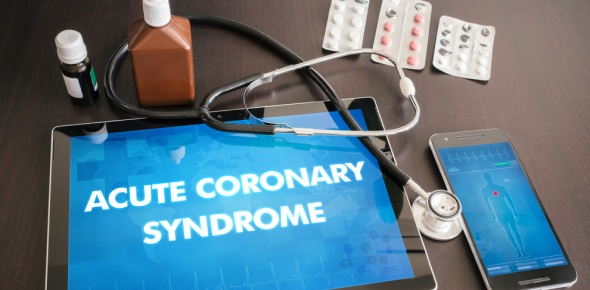Acute Coronary Syndrome is a cardiac medical emergency, needing immediate intervention of Best Cardiologist in Lahore. The term acute coronary syndrome refers to conditions of decreased blood flow to the heart musculature. Read on to know more about ACS: its symptoms, causes, diagnosis and management.
What Is Acute Coronary Syndrome?
Acute coronary syndrome refers to the coronary artery disease with life-threatening blockages that can impede blood flow to the heart. Consequently, there is chest pain or angina, and even heart attack with persistent blockage. Acute coronary syndrome requires medical management to restore the blood flow to the heart muscle.
There are three types of ACS classified according to the symptoms and electrocardiography results. The treatment strategy is based on the type of ACS diagnosed. These types are:
- Unstable angina: while stable angina is dependent on activity, this type of chest pain is not dependent on exertion. It can come and go even on rest. If stable angina worsens it can herald impending myocardial infarction.
- ST-segment elevation myocardial infarction (STEMI): in this type of heart attack, large portion of the heart muscle dies due to blockage of main coronary artery. This is a serious type of heart attack detected with the help of electrocardiography (ECG) and blood tests.
- Non-ST segment elevation myocardial infarction (NSTEMI): this type of blockage occurs for a short period of time, and doesn’t cause as much damage as STEMI. It is detected through blood tests.
What Are The Symptoms Of Acute Coronary Syndrome?
Acute coronary syndrome presents with sudden onset of the following symptoms:
- Chest pain
- Pressure in the chest
- Shortness of breath
- Radiating pain to the arm, jaw or stomach
- Indigestion
- Light headedness
- Sweating
- Nausea and vomiting
- Numbness
- Racing heartbeat
- Fatigue
- Feeling of apprehension
These symptoms can vary in intensity, depending on the sex of the patient, underlying risk factors, age of the patient and concurrent medical conditions.
What Are The Causes Of Acute Coronary Syndrome?
The blockage of coronary vessels occurs when there is buildup of fatty tissue—called plaques—in the walls, or when blood clots from anywhere else in the body travel to the coronary vasculature (emboli) to block the vessel. Consequently, there is decrease in the blood and oxygen supplied to the heart muscle.
If there is only decrease in the oxygenation of heart muscle, the condition is called angina. In case of severe blockage when the heart muscle dies, the condition is called myocardial infarction or heart attack.

Who Is At Risk Of Acute Coronary Syndrome?
The risk of acute coronary syndrome is higher in:
- Older individuals
- Patients with uncontrolled diabetes
- Patients with uncontrolled hypertension
- Patients with high serum cholesterol
- People with family history of heart disease
- People with history of heart disease
- Females with history of gestational diabetes, preeclampsia or hypertension during pregnancy
- History of COVID-19 infection
- People who smoke
- People with sedentary lifestyle
- Obese and overweight individuals
- Individuals with history of drug abuse e.g. cocaine use
- Individuals with unhealthy lifestyle and dietary habits
How Is Acute Coronary Syndrome Diagnosed?
The diagnosis of acute coronary syndrome is made through strong patient history, physical examination and confirmatory investigations:
- ECG: electrocardiography measures the electric activity of the heart through electrodes. In case of ACS, there are irregular impulses caught on the ECG, which can indicate the location of the blockage as well.
- Blood tests: enzymes are raised in angina and heart attack as the heart muscle is damaged due to ischemia.
- Angiography: coronary angiograms are used to learn about the blockages in the coronary vessels through radioactive dyes that are injected in the blood vessels.
- Echocardiogram: this investigation involves using ultrasound rays to study the movement of the heart muscle. This can determine activity of the heart.
What Are The Treatment Options?
The drugs for ACS include: clot busters, antiplatelet medication, vessel dilators, beta blockers and antihypertensives, under the care of an expert like Dr. Syed Ali Haider.

